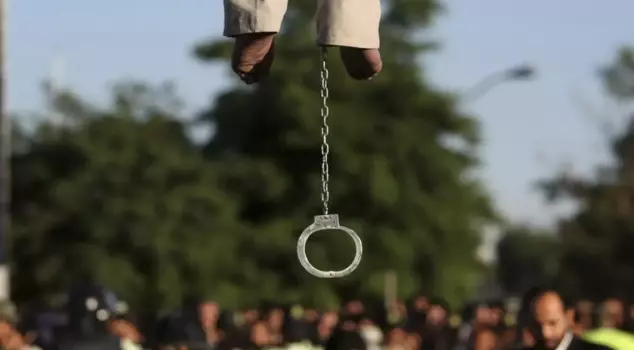
16.10.2025 18:51
Hussein Baoumi from Amnesty International stated that executions in Iran have reached horrifying levels. "Since the beginning of 2025, more than 1,000 people have been executed in Iran, averaging four people per day. This year's executions have reached levels not seen since 1989," Baoumi said, urging UN member states to urgently pressure authorities to halt the executions.
```html
The United Nations (UN) Secretary-General today presented his report on Iran, while the UN Special Rapporteur on Iran and the UN Independent Fact-Finding Mission will present their joint briefing to the UN General Assembly's Third Committee on October 30, 2025.
"AN AVERAGE OF 4 PEOPLE HAVE BEEN EXECUTED DAILY SINCE THE BEGINNING OF THE YEAR"
In a statement released before the presentations, Amnesty International's Deputy Regional Director for the Middle East and North Africa, Hussein Baoumi, stated:
"UN member states must urgently confront the shocking wave of executions by Iranian officials. Since the beginning of 2025, more than 1,000 people have been executed in Iran, averaging four people per day. Since the 'Women, Life, Freedom' protests in 2022, authorities have increasingly weaponized the death penalty to spread fear among the public, suppress dissent, and punish marginalized communities. This year, executions have reached unprecedented levels not seen since 1989.
"CONTINUING AT A TERRIFYING PACE"
The use of the death penalty for drug-related offenses, in violation of Iran's obligations under international law, continues at a terrifying pace. Executions are carried out following completely unfair trials held behind closed doors, along with widespread torture and forced 'confessions.'
For years, Iranian authorities have tried to normalize the execution of hundreds of people each year; however, while hundreds of families mourn their loved ones and thousands more lives are at risk due to distorted death sentences, this irrational assault on the right to life should not be treated as normal. Even in terms of Iran's own dark record, this is a horrific period that requires serious and coordinated international intervention."
CALL TO UN MEMBER STATES
"We urgently call on UN member states to raise the issue, including oral statements, at the Interactive Dialogue meeting on Iran in the Third Committee. States should demand that Iranian officials immediately halt all executions, overturn death sentences issued after unfair trials, repeal the death penalty provisions in drug control laws, and enact a moratorium on executions until the death penalty is completely abolished. We also call on the UN Office on Drugs and Crime (UNODC) and the United Nations Commission on Narcotic Drugs (INCB) to pressure Iranian officials to amend drug control policies in a manner that respects human rights," Baoumi concluded his remarks.
"Given the prevailing systematic impunity regarding serious human rights violations in Iran, we also call on states to initiate criminal investigations into torture and other international law crimes committed in Iran under universal jurisdiction, including issuing arrest warrants against officials for whom there is evidence of criminal responsibility."
BACKGROUND
Among the thousands of people at risk of execution in Iran are those sentenced to death for drug-related offenses and those convicted of vague charges such as "enmity against God" and "spreading corruption on earth," in violation of international law, which limits the use of the death penalty to "the most serious crimes" involving intentional killing.
In Iran, executions are often carried out following trials that are not fair in any way, held in courts like the Revolutionary Courts, which collaborate with security and intelligence forces to condemn people to death. Marginalized ethnic minorities and communities, including Afghans, Ahvaz Arabs, Baluchis, and Kurds, are disproportionately affected by executions due to their lower socioeconomic conditions.
```